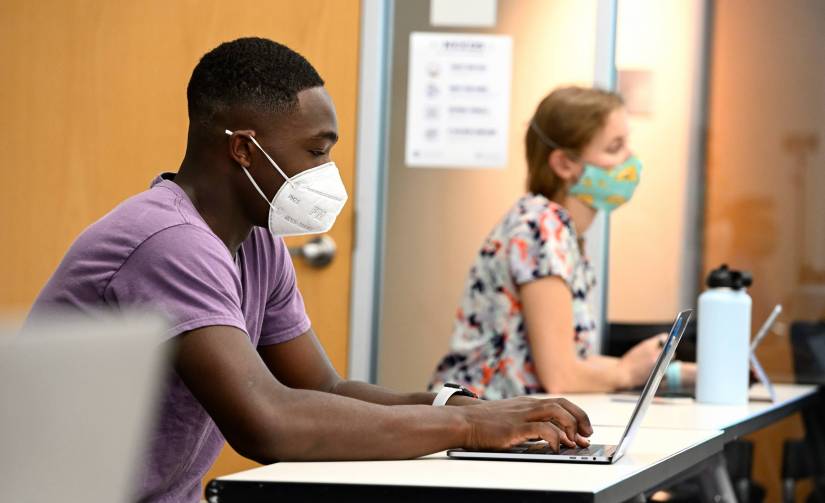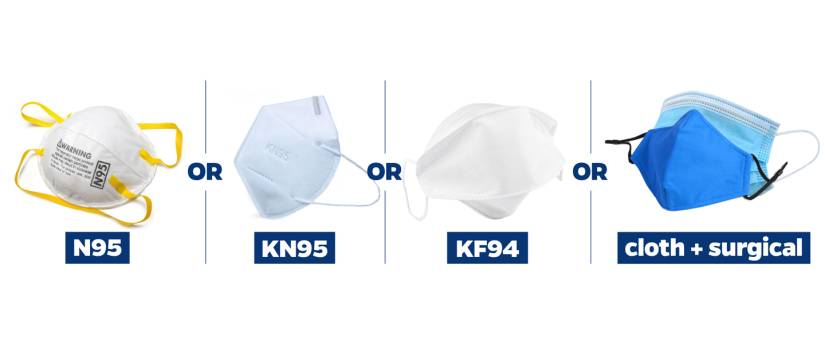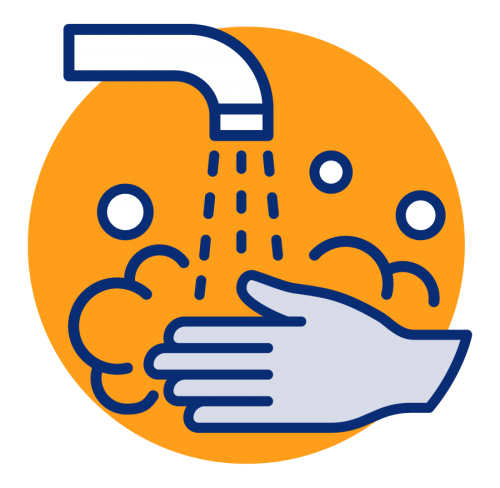Personal Safety Practices

Masking is optional in classrooms, lab- and studio-based classes, university administrative spaces, research labs, public spaces, athletic facilities, and non-classroom communal spaces such as residence halls and libraries.
Individuals may choose to continue masking themselves based on their individual circumstances.
School of Medicine affiliates will continue to follow Johns Hopkins Medicine’s masking policy.
Face coverings

If you choose to wear a mask, the most effective types of face coverings are:
- N95 masks
- KN95 masks
- KF94 masks
- A combination of a cloth mask with a surgical mask
In settings where masks are still required, one of the above options must be used.
Whatever kind of mask you use, the most important thing is to wear it consistently and properly—with a tight fit and covering both the mouth and the nose.
Note that the School of Medicine affiliates will continue to follow Johns Hopkins Medicine’s masking policy.
Vaccination
Vaccination remains the most important step you can take to keep yourself and your family safe. The COVID vaccines remain remarkably effective against preventing severe illness and hospitalization.
As of April 1, 2024, Johns Hopkins University has changed its COVID-19 vaccination policy. The university strongly recommends that all students, staff, and faculty receive at least one dose of an FDA- or WHO-authorized vaccine. While not required, you can still upload proof of your vaccination to the Vaccine Management System (VMS) as soon as you’ve had your shot.
Smoking and Vaping
Smoking and vaping are prohibited on all university campuses and properties. The Human Resources Department has information on smoking cessation support programs for employees on its website. Students can take advantage of the state of Maryland’s smoking cessation program, accessible online at https://mdquit.org/quitline.
Handwashing

Everyone is encouraged to wash their hands regularly with soap and warm water for at least 20 seconds, especially after they have been in a public place or after blowing their nose, coughing, sneezing, or touching their face. It is also suggested that everyone wash their hands as they enter and leave various on-campus spaces and before eating. People should also avoid touching their eyes, nose, and mouth.
If soap and water are not readily available, people can use a hand sanitizer that contains at least 60% alcohol. They should cover all surfaces of their hands and rub them together until they feel dry.





